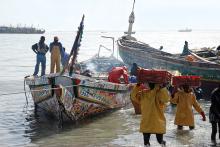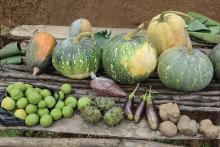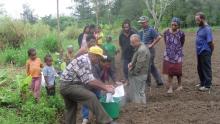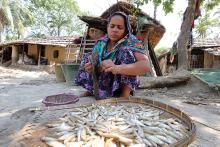Land Library
Welcome to the Land Portal Library. Explore our vast collection of open-access resources (over 74,000) including reports, journal articles, research papers, peer-reviewed publications, legal documents, videos and much more.
/ library resources
Showing items 1 through 9 of 25.This thesis documents as well as questions how the presence of large mining operations in Andean regions of Peru alters social and natural landscapes.
This article analyzes different visions and positions in a conflict between the developer of an open-pit mine in Mexico and project opponents using the echelons of rights analysis framework, distinguishing four layers of dispute: contested resources; contents of rules and regulations; decision-ma
Mauritania’s coastal waters are among the world’s richest fishing grounds. However, just as in many other countries around the globe, the sustainable use of this resource is under threat from illegal fishing and overfishing.
During the last few years, the donor community has increased its efforts to reduce the large amounts of fish lost in the distribution chain in artisanal fishery, an endeavour that ought to be welcomed in principle.
Integrated Watershed Management represents an option for the management of water catchment areas. However, what may sound good in theory often proves to be very difficult when it comes to practical implementation, as an example from the Lower Mekong Region shows.
This thesis is about peasant and indigenous struggles for water rights in the Ecuadorian Highlands.
Twenty-seven nations are classified as ‘water scarce’, a further 16 as ‘water stressed’. This situation, coupled with the fact that many surface and groundwater systems are shared between two or more states, has led governments to develop sustainable water management strategies.
One of the measures that can help developing countries in meeting Target 10 of the Millennium Development Goals – halving the number of people without access to water and adequate sanitation by 2015 – is through a water sector reform.
Through investigating the reactions of commercial farmers to land and water reforms in the Trichardtsdal-Ofcolaco area, Limpopo Province, Olifants Basin, South Africa, from 1997 to 2006, it is shown that water claims are key to land redistribution processes, and that commercial farmers make strat






